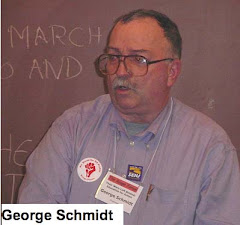A slide show I youtubed last year and forgot to post here. May be of interest with the triangle anniversary upcoming.
from Tom Juravich
from http://www.tomjuravich.com/tangled/songs/breadandroses.php
The slogan "Bread and Roses" originated in a poem of that name by James Oppenheim, published in American Magazine in December 1911, which attributed it to "the women in the West."
It is commonly associated with the textile strike in Lawrence, Massachusetts during January-March 1912, now often known as the "Bread and Roses strike." The strike, which united dozens of immigrant communities under the leadership of the Industrial Workers of the World, was led to a large extent by women.
The strikers are credited with inventing the moving picket line, so that they would not be arrested for loitering.
It was settled on terms generally favorable to the workers. They won pay increases, time-and-a-quarter pay for overtime, and a promise of no discrimination against strikers.
It has long been thought that Oppenheim was inspired by a strike sign carried by women with the slogan, "We want bread, but we want roses, too!"
We now know that he did not write it during the strike. But it was embraced by the strikers and the notion of "Bread and Roses" has become a cry for justice and dignity for women workers around the world.
Observer Ray Stannard Baker wrote in The American Magazine:
[Lawrence] is the first strike I ever saw which sang. I shall not soon forget the curious lift, the strange sudden fire of the mingled nationalities at the strike meetings when they broke into the universal language of song. And not only at the meetings did they sing, but in the soup houses and in the streets.
Bread and Roses has since become a women's movement standard with either of two melodies variously attributed to Martha L. Coleman, Caroline Kohsleet, and Carolin Kohlsaat. Utah Phillips also has a melody, as does Mimi Fariña, whose is the most well-known.
Tom Juravich adds:
For me, though, the poetry of Bread and Roses suggests a different kind of melody -- one that lends itself to a more lyrical interpretation than the march cadence of the Fariña tune. So several years ago I wrote a new melody. I also took the opportunity to revise some of the lyrics that had exhibited the sexism and racism of the early 20th century."
Bread And Roses
As we come marching, marching in beauty of the day
A million darkened kitchens, a thousand mill lofts grey
Are touched with all the radiance that a sudden sun discloses,
For the people here are singing bread and roses, bread and roses.
As we come marching, marching, unnumbered women dead
Go rising through our singing their ancient cry for bread.
Art, love, and beauty their drudging spirits knew.
Yes, it is bread we fight for but we fight for roses too.
As we come marching, marching, we
battle once again.
We're fighting for our children, our
sisters and for men.
Our lives shall not be sweated from birth
until life closes,
Hearts starve as well as bodies, give us
bread, but give us roses.
As we come marching, marching, we're
standing proud and tall,
The rising of the women means the
rising of us all.
No more the drudge and idler, ten that
toil where one reposes,
But a sharing of life's glories, bread and
roses, bread and roses.
Personnel: Teresa Healy, vocals; Tom Juravich, vocals, acoustic guitar, producer; James Stephens, fiddle, electric guitar, producer, recording, mixing; David Cain, mastering; Dave Bignell, mixing.






























0 Comments:
Post a Comment